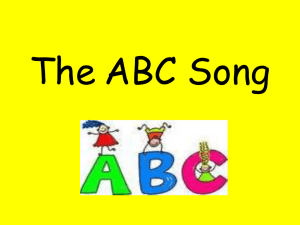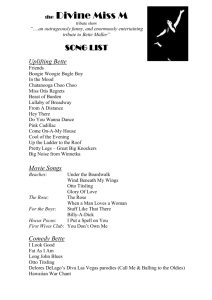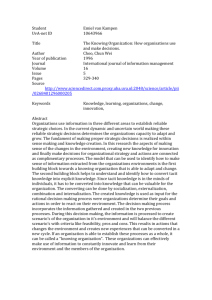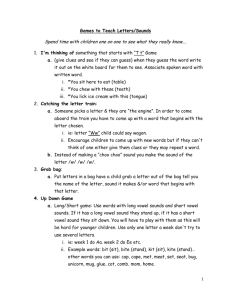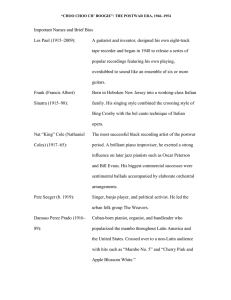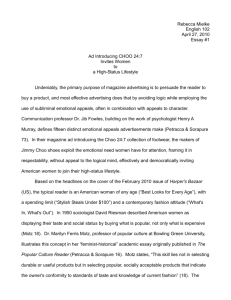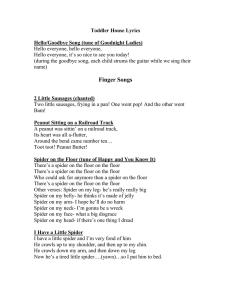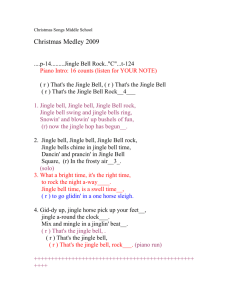Preschool Special Education Newsletter - January 2016
advertisement
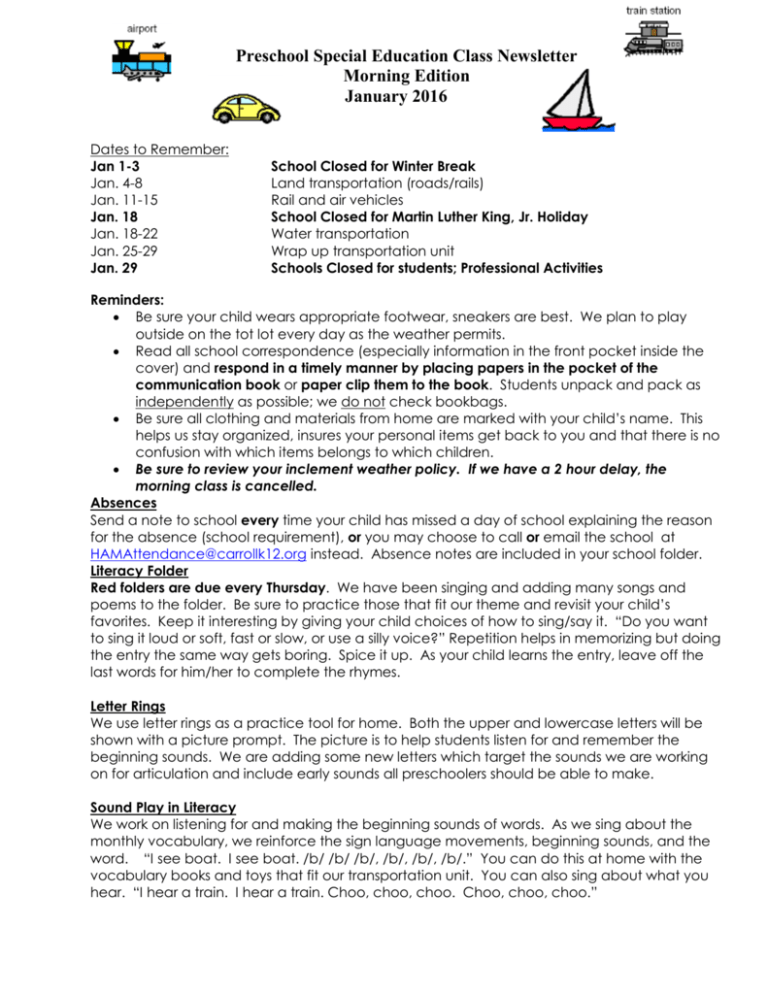
Preschool Special Education Class Newsletter Morning Edition January 2016 Dates to Remember: Jan 1-3 Jan. 4-8 Jan. 11-15 Jan. 18 Jan. 18-22 Jan. 25-29 Jan. 29 School Closed for Winter Break Land transportation (roads/rails) Rail and air vehicles School Closed for Martin Luther King, Jr. Holiday Water transportation Wrap up transportation unit Schools Closed for students; Professional Activities Reminders: Be sure your child wears appropriate footwear, sneakers are best. We plan to play outside on the tot lot every day as the weather permits. Read all school correspondence (especially information in the front pocket inside the cover) and respond in a timely manner by placing papers in the pocket of the communication book or paper clip them to the book. Students unpack and pack as independently as possible; we do not check bookbags. Be sure all clothing and materials from home are marked with your child’s name. This helps us stay organized, insures your personal items get back to you and that there is no confusion with which items belongs to which children. Be sure to review your inclement weather policy. If we have a 2 hour delay, the morning class is cancelled. Absences Send a note to school every time your child has missed a day of school explaining the reason for the absence (school requirement), or you may choose to call or email the school at HAMAttendance@carrollk12.org instead. Absence notes are included in your school folder. Literacy Folder Red folders are due every Thursday. We have been singing and adding many songs and poems to the folder. Be sure to practice those that fit our theme and revisit your child’s favorites. Keep it interesting by giving your child choices of how to sing/say it. “Do you want to sing it loud or soft, fast or slow, or use a silly voice?” Repetition helps in memorizing but doing the entry the same way gets boring. Spice it up. As your child learns the entry, leave off the last words for him/her to complete the rhymes. Letter Rings We use letter rings as a practice tool for home. Both the upper and lowercase letters will be shown with a picture prompt. The picture is to help students listen for and remember the beginning sounds. We are adding some new letters which target the sounds we are working on for articulation and include early sounds all preschoolers should be able to make. Sound Play in Literacy We work on listening for and making the beginning sounds of words. As we sing about the monthly vocabulary, we reinforce the sign language movements, beginning sounds, and the word. “I see boat. I see boat. /b/ /b/ /b/, /b/, /b/, /b/.” You can do this at home with the vocabulary books and toys that fit our transportation unit. You can also sing about what you hear. “I hear a train. I hear a train. Choo, choo, choo. Choo, choo, choo.” Preschool Special Education Class Newsletter Morning Edition January 2016 Vocabulary and Early Reading Skills Please be sure to read the vocabulary book daily. Having your child turn the pages and point to pictures and words will improve his/her understanding of print. We want the children to be interested in and able to navigate books. We also ask you to read daily 5-10 minutes each day to help increase your child’s attention to books. Stop every page or so and engage your child in pointing to a picture, guessing what will come next, and telling about the pictures. When reading books of a similar topic, you can make connections from that book to the vocabulary words and pictures. Making connections to other books and real activities helps extend our understanding of the word and its meaning. Many of the children are working on answering questions about the story. Start with basic “wh” questions: who, what, where, when, why. You can also have them help “read” stories with repeating lines or phrases. Our focus as you read with your child is holding the book correctly, turning pages 1 at a time, and attending for 10 minutes. If your child can’t do this, build the attention span by pushing to the limit and saying 1 more page. This will assist in building attention but not making it a battle. Questions? Just call me. Theme This month we will focus on the different types of transportation and are using where they travel as the focus of each week. This categorization will help students understand how the vehicles are different, yet similar and share a common way of moving. Activities will incorporate following directions. We are building skills for pretend by dressing up and driving or steering different types of vehicles. We’ll use art to apply what we know about vehicles and explore textures (paint, water, glue). In addition, we’ll do sorting and puzzles to practice problem-solving skills. We’ll practice some environmental reading of signs for stop and go and practice position words (on, under, over, next to, in). You can practice these at home by moving and placing vehicles: in the box, under the blanket, over your head, on the road, next to the garage, and so on. Pretend play helps students internalize the concepts and vocabulary and make things make sense. Play is a young child’s work. Extensions This month I’d like you to focus on reading each night for at least 15 minutes, extending matching skills with vocabulary sets, and completing the January calendar of activities. The activities can be switched around or changed to fit your schedule and opportunities that come up. In addition, we sent home a list of web resources with access codes and passwords. Check them out and let us know your favorites. DID YOU KNOW? A sharing of developmental information and ideas to promote learning at home. *Children construct their understanding of print through meaningful reading and writing experiences. *Art provides an opportunity to represent thoughts and ideas. *Children learn about musical patterns and relationships between notes. *Children feel a sense of mastery and expand their understanding of everyday life through pretending.

